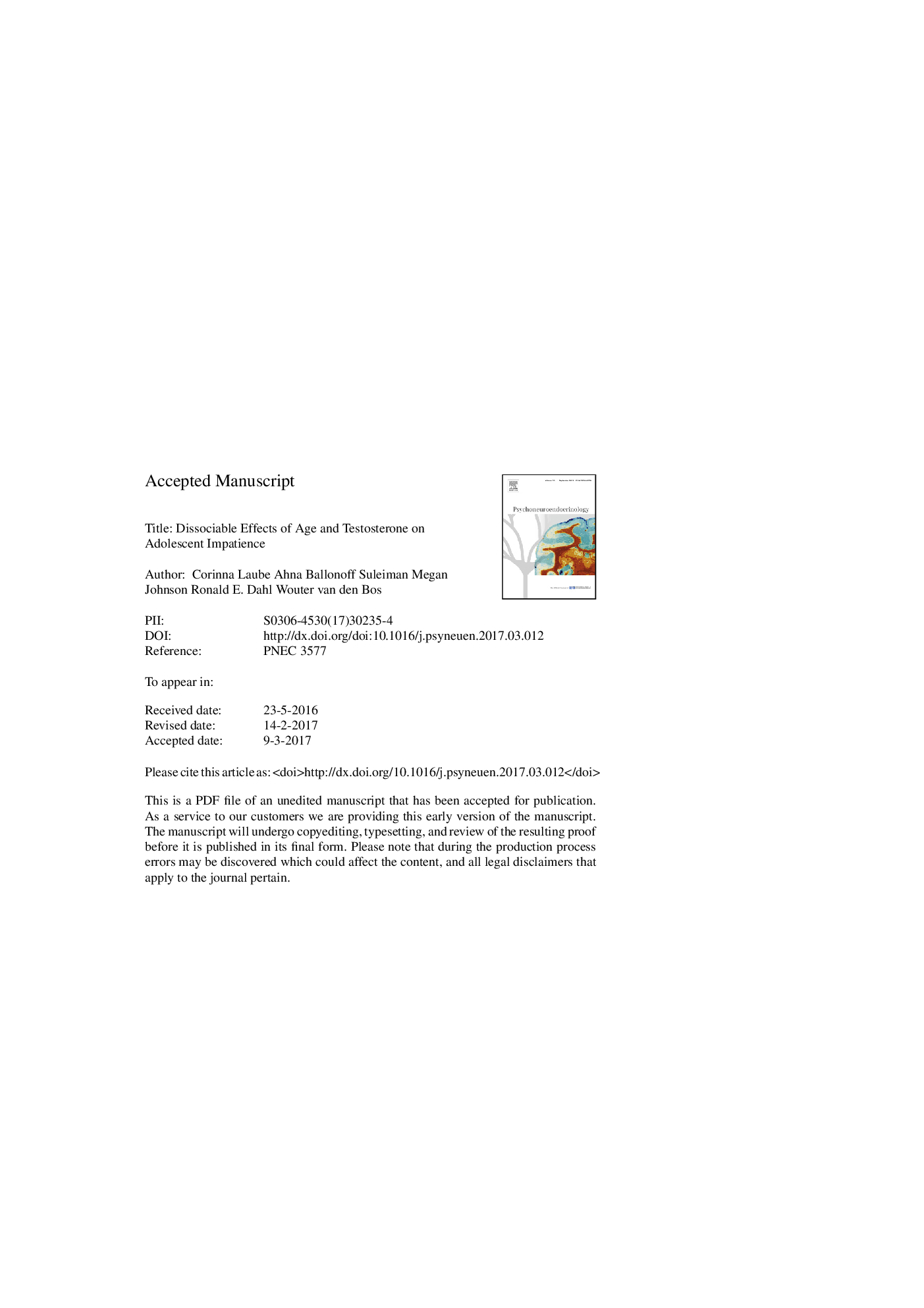| Article ID | Journal | Published Year | Pages | File Type |
|---|---|---|---|---|
| 4934463 | Psychoneuroendocrinology | 2017 | 25 Pages |
Abstract
The onset of adolescence is associated with an increase in transgressive behaviours-from juvenile delinquency to substance use and unprotected sex-that are often attributed to increased impulsiveness. In the past, this increase was ascribed to “raging hormones”; more recently, to an imbalance in the maturation of different brain regions. However, it remains unclear how these large-scale biological changes impact specific processes that result in impulsive decisions, namely, sensitivity to immediate rewards and general discounting of future options. To gain further insight into these questions, we used an intertemporal choice task to investigate the role of testosterone in impatient decision-making in boys at the developmental transition to adolescence (NÂ =Â 72, ages 11-14). Our results suggest that increased testosterone (but not age) is related to increased sensitivity to immediate rewards, whereas increased age (but not testosterone) is related to a reduction in general impatience. These results are discussed in the context of recent neurobiological models of adolescent development.
Related Topics
Life Sciences
Biochemistry, Genetics and Molecular Biology
Endocrinology
Authors
Corinna Laube, Ahna Ballonoff Suleiman, Megan Johnson, Ronald E. Dahl, Wouter van den Bos,
